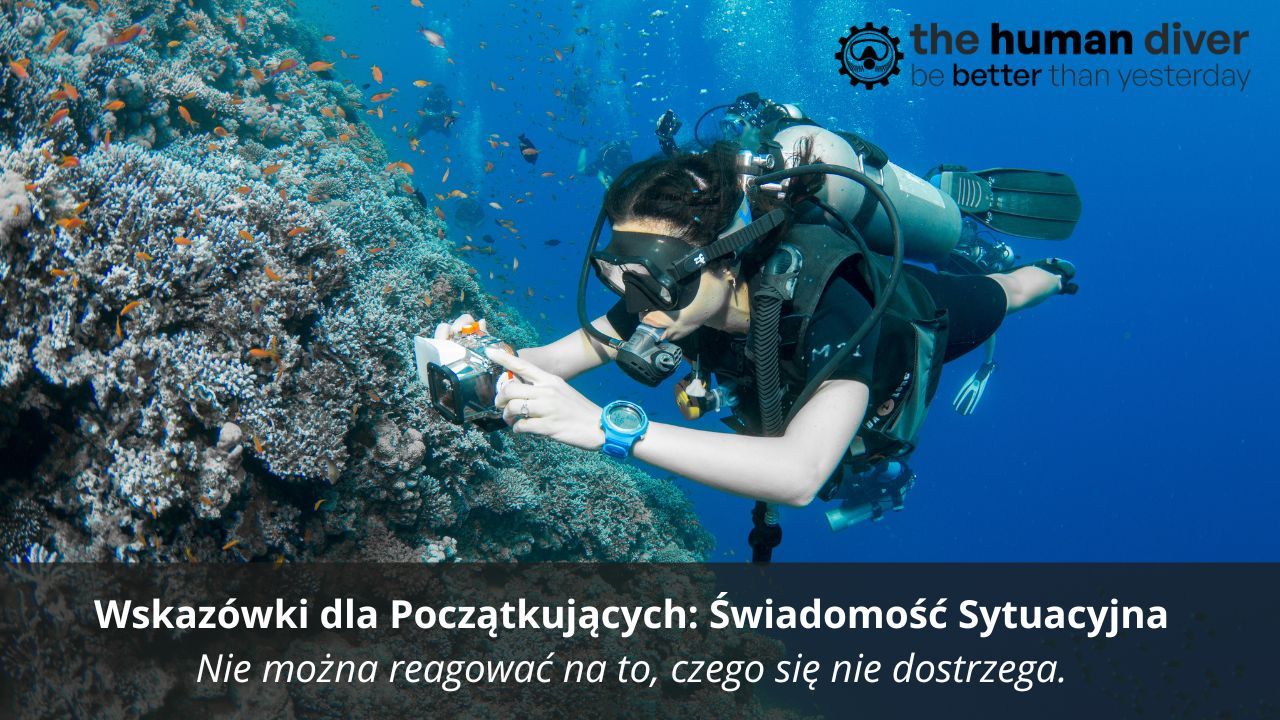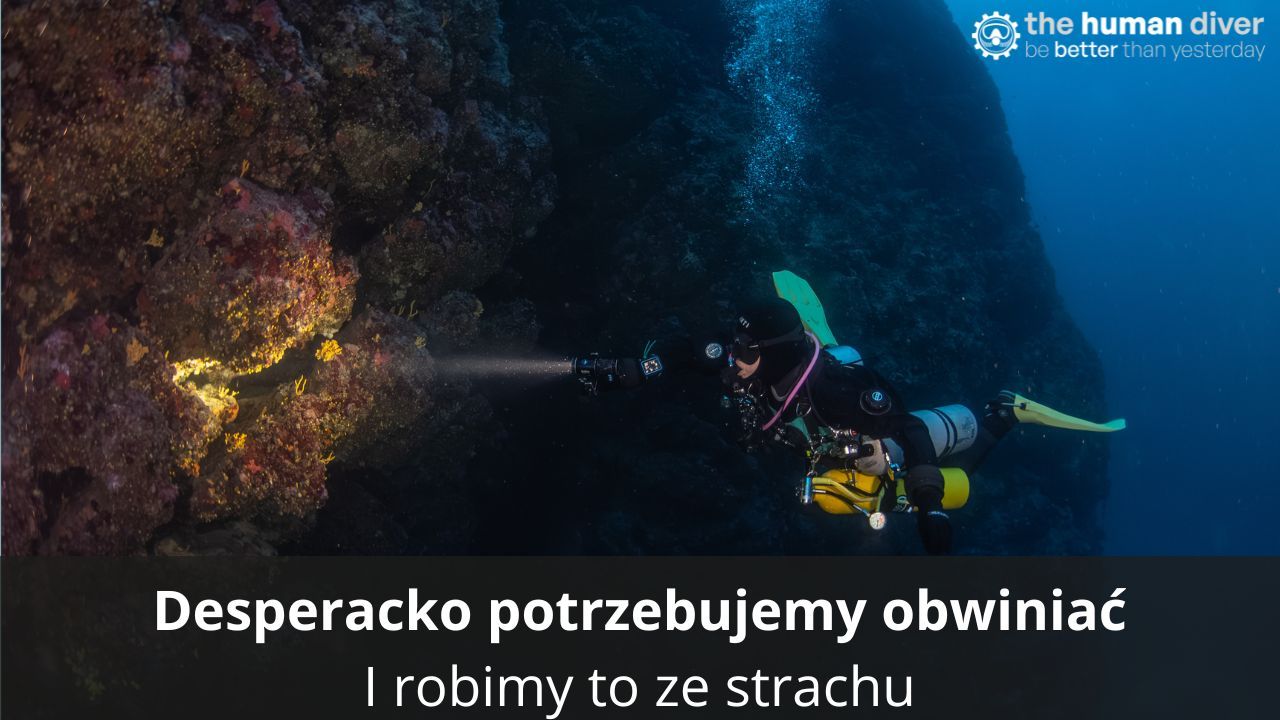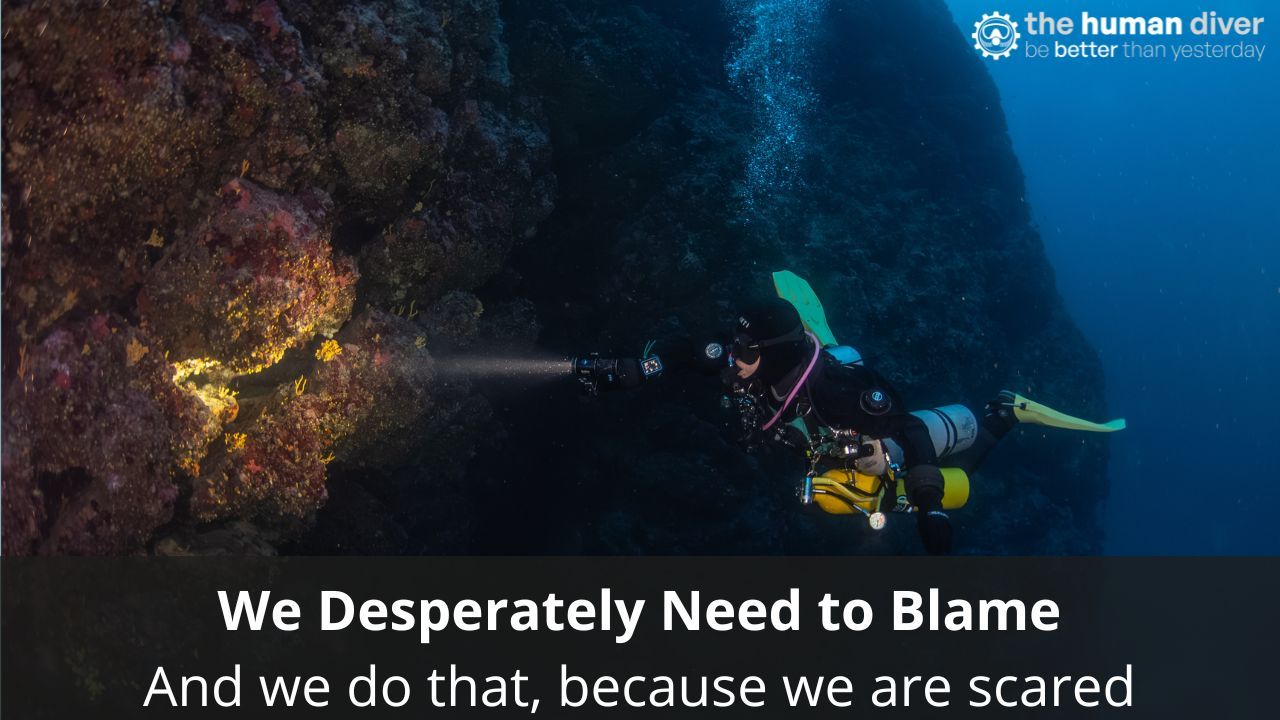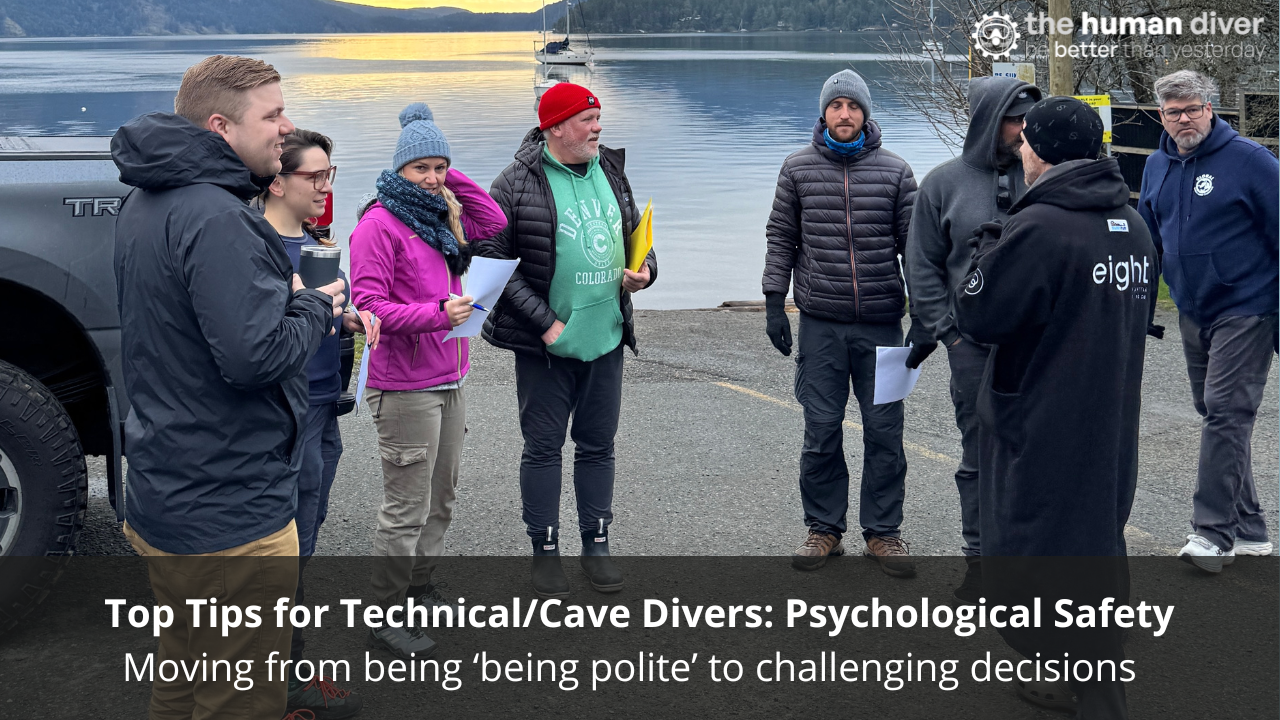
Shoulda, Woulda, Coulda
Dec 13, 2023“Shoulda, woulda, coulda are the last words of a fool” Beverly Knight
“Yesterday I was diving in my local favourite site with some friends and a diver I’d never met before. A couple of minutes into the dive that diver suddenly swam towards the divemaster, signalling they were out of air. After putting the diver on his long hose, the divemaster checked the divers tank and discovered the valve was only turned on a half a turn. After turning it on fully and checking the gauge, he handed the divers second stage back to him and the dive continued as normal.”
We as divers are getting better at talking about mistakes. That’s great because the more we can share, the more everyone can learn. However, we still frequently see responses like this:
“Blah blah- if you don’t know how to turn a tank on you shouldn’t be diving”
“A buddy check should have avoided the problem”
“It wouldn’t happen if you didn’t do the half turn back”

The problem with these responses is that “should, would and could” are all counterfactuals, things that didn't happen and words that people use to reject someone else’s argument, to the point of becoming a phrase in themselves- “shoulda, woulda, coulda”. When we’re discussing our own mistakes, shoulda, woulda, coulda expresses our regret but still doesn’t help in any way. So what can we do instead?
“I wouldn’t have done that if I’d have known”. Often we are missing information that means we make an incorrect decision or omit something. Of course if we know more, it’s easier to do the right thing but by just saying “I would have…” we’re acknowledging we are able to do things differently without committing to any change. Instead, to learn from this situation we can say “Next time, I will….”. This now gives us a solid framework to focus on and control of the situation, rather than just a vague feeling of regret.
“He could have….”. After an incident has happened it often seems obvious what options the person or people involved had. This is because of hindsight bias. Hindsight bias happens because we can easily join the dots to see what happened after an event and it appears as a linear sequence. The reality is that people had multiple choices to make or multiple factors went wrong and at some point those choices or factors lined up to create a problem. Again, if we change the language we can learn from the incident. “He could” becomes “He can”. This gives a solution to the problem and allows learning.
“They shouldn’t have done that”. This is probably one of the most common comments I see, especially on public forum posts. It gives the person typing it a great sense of superiority, allowing them to condemn the actions of others without helping in any way at all. We’ve all done things we shouldn’t have, sometimes on purpose but very often in error. Let’s use the example above; “If you don’t know how to turn a tank on you shouldn’t be diving”. In this case the author is making a very simplistic statement and implying that THEY would never make such a mistake. The reality is that we see hundreds of people who have to either consciously think which way to turn the tank valve, assume a valve is closed and think they are opening it (when in fact they’re closing it) or forget to open it in the first place. It’s something that’s as easy to get wrong as leaving your keys in the house and letting the door lock behind you. So by saying that someone shouldn’t do something, you aren’t helping them at all. If someone shouldn’t be diving because they don’t know which way to turn on a tank, what should they do to fix that? Learn, maybe? And we learn by practising. And a big part of practising is making mistakes. So we’re back to the beginning. Changing the language to “Next time, try this…” is a far better answer, with a result that can be practised.

The other problem with shoulda, woulda, coulda is that we use it as an excuse.
“Can you do this?”
“I could, but….”
A much stronger answer is “I can do this instead”. We humans are lazy, so excusing things instead of finding answers to them is the preferred easy option but that tiny bit of effort makes a huge difference to the future.
One other thing we can do to learn from mistakes, rather than condemning people is by asking “How did it make sense to them at the time?”. By putting ourselves in their shoes, and assessing all the different options they had we start to understand their thought process and it becomes easier to give solutions or improvements. Understanding the context they were in often gives us more information and lets us help them.
Summary
Shoulda, woulda, coulda doesn’t help our learning process. By implying superiority it might make people feel good about themselves but doesn’t actually help (and in fact often prevents learning from happening). Instead we can change our language to provide solutions; “would” becomes “will”, “could” becomes “can”, and “should” becomes “shall” or “try this”. Understanding the context in which people have made mistakes also allows us to help them not make that mistake again in the future.

Jenny is a full-time technical diving instructor and safety diver. Prior to diving, she worked in outdoor education for 10 years teaching rock climbing, white water kayaking and canoeing, sailing, skiing, caving and cycling, among other sports. Her interest in team development started with outdoor education, using it as a tool to help people learn more about communication, planning and teamwork.
Since 2009 she has lived in Dahab, Egypt teaching SCUBA diving. She is now a technical instructor trainer for TDI, advanced trimix instructor, advanced mixed gas CCR diver and helitrox CCR instructor.
Jenny has supported a number of deep dives as part of H2O divers dive team and works as a safety diver in the media industry.
If you'd like to deepen your diving experience, consider taking the online introduction course which will change your attitude towards diving because safety is your perception, visit the website.
Want to learn more about this article or have questions? Contact us.










